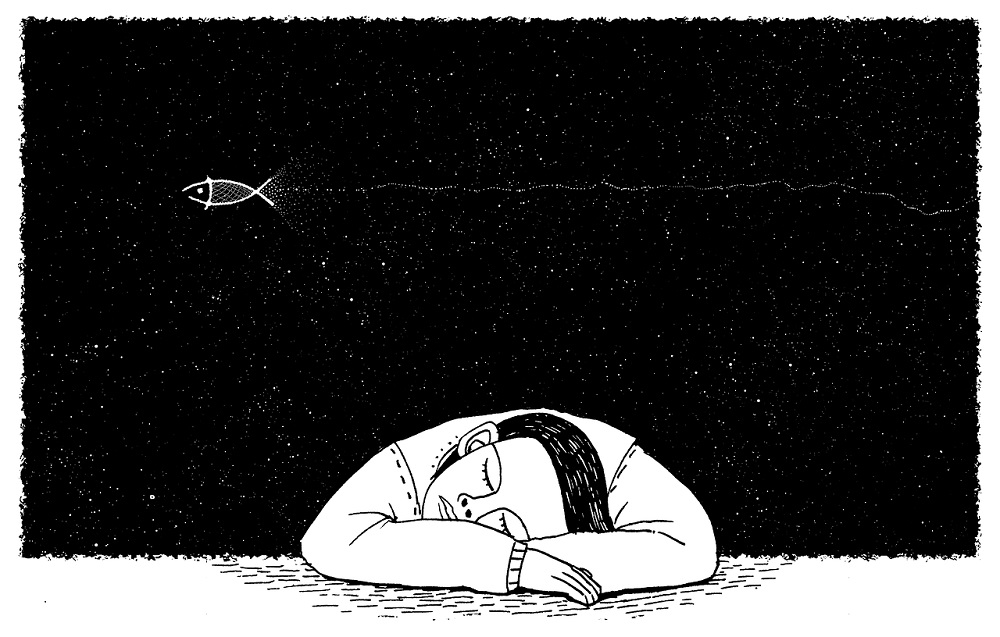5 Tips to Stop Falling Asleep During Meditation(Why It Happens?)
Why do I often fall asleep during meditation? Is my practice flawed, or is it simply ineffective for me? These questions frequently arise, especially among beginners. Surprisingly, even experienced meditators can grapple with the challenge of nodding off during their sessions. In this post, we’ll explore the reasons behind falling asleep while meditating and offer practical tips to help you overcome this common issue.
For some, meditation can lead to drifting into slumber, while others experience post-meditation drowsiness. Conversely, many individuals turn to meditation as a means to enhance their sleep patterns. Our unique psychological makeup means that we all confront distinct challenges in various aspects of life, and meditation is no exception.

Becoming drowsy during meditation is so common that I’ve witnessed an entire hall full of people snoring after a meditation session I attended. Most of them were meditating for the first time, but I know that this can happen to anyone, so there’s really nothing to worry about.
I have also observed people discontinuing their meditation practice, citing drowsiness as a reason to avoid it entirely. They often say, “Meditation isn’t for me; I can’t concentrate because I become sleepy when I try to sit in silence.”
But, you know what? That’s not quite right. Meditation is for everyone, and feeling a bit drowsy during a meditation session is completely normal. Actually, there are several reasons why it can happen to you. So, let’s dig into different factors that might be affecting your ability to make it through a meditation session, whether you tend to get a little sleepy halfway through or struggle to stay fully awake during the practice.
How I Once Woke Up Two Hours After Meditation
You know what? It actually happened once. I woke up and realized I’d been meditating for a whopping two hours, all while being in a super-deep sleep. This happened right after an incredibly intense session from Christie’s Unlimited Abundance program. I’ll never forget that one because it was during that session that I let go of a ton of pent-up emotions, and that’s what knocked me out for such a long nap.
In the beginning, I often found myself nodding off briefly during meditation, especially during guided sessions or on particularly hectic days. You see, it’s actually a crucial part of the whole meditation journey. You need a bit of practice before you can comfortably sit in meditation for extended periods. Plus, sometimes, it serves as a mechanism for our minds to let go of built-up stress that’s been lingering for a while.
However, you shouldn’t let this become a recurring issue. If it happens every time, you might end up using meditation as a nap time rather than as a practice, which goes against its purpose. But don’t stress too much about it because excessive worry can not only demotivate you but also make meditation challenging. Anxiety about falling asleep can distract you from focusing.
So, here’s the deal: it’s perfectly okay to nod off occasionally during meditation. However, at the same time, it’s a good idea to take steps to prevent it from happening too often. That’s why we’re about to delve into the possible reasons behind your drowsiness during meditation and provide practical solutions.
#1 Avoid Meditating on a Full Stomach
One of the most common reasons for not being able to meditate effectively without dozing off is attempting to do so right after eating. There should be a proper gap between your meal and your meditation session; otherwise, you will likely feel lethargic and find it difficult to concentrate.
The key point is that your digestive system should not be active while you are trying to meditate, as this may lead to drowsiness. However, this doesn’t mean you should go hungry. If you are meditating during the early morning hours before breakfast, food may not be a concern. But when meditating at other times of the day, keep in mind that a significant amount of time should have passed since your last meal (about 2-3 hours). This will ensure that your digestive system is at ease, and you won’t be hungry either, as meditating on an empty stomach can also make it challenging to focus.
#2 Posture
Conventional methods of meditation often emphasize the importance of posture, particularly keeping your spine erect. This guidance is something you’ll commonly hear from yoga institutions and traditional meditation instructors. I distinctly recall the first day of the Silva Ultra Mind System program, where Vishen Lakhiani, the instructor, mentioned that sitting in a crossed-leg position serves the purpose of creating mild discomfort. This discomfort, surprisingly, helps us stay awake when our minds enter deep states of relaxation like the alpha state where brainwaves are slower, in the later lessons of that course they also teach how you can stay conscious even in the theta state which usually occurs in the starting phases of sleep.
Coming back to the point, the lotus posture is commonly favored in ancient meditation techniques. From personal experience, I can attest that unless a specific meditation requires you to sit in some other posture, the lotus position has proven to be the most effective for me.
Here’s a video on the lotus pose(Padmasana), Padamasana, and Sukasana :-
If the lotus pose feels difficult or uncomfortable, you can explore the other two postures mentioned in the video. However, if none of them are comfortable for you, simply maintaining an erect spine while meditating, instead of reclining, can help prevent drifting off easily during your meditation sessions.
#3 Meditating Outdoors
The environment unquestionably ranks among the primary factors influencing the quality of meditation. There’s a compelling reason why many people prefer meditating in natural settings; it offers the essential ambiance that not only helps them connect with nature but also enables a deeper state of silence.
While it may not always be feasible to find an ideal meditation spot outdoors, meditating in the open air is comparatively more beneficial than doing so in enclosed spaces. If outdoor meditation isn’t an option, make sure the room in which you meditate is adequately ventilated.
Fresh air is necessary for you to be able to meditate properly, you may feel sleepy if you meditate in a closed room with less ventilation. Also, your chances of falling asleep inside your house are far greater as your couch, sofa, and bed are nearby. Also, I know that many of you who are converting your meditation into slumber are already choosing these super comfy options, so try to avoid sitting on your bed and prefer something like a yoga mat or meditation cushion instead.
#4 Meditate With Your Eyes Open

I hear many of you saying, ‘What? You can’t meditate with your eyes open?’ Yes, you can! There are many meditation practices that do not require you to close your eyes. For example, during many mindfulness meditation exercises, keeping your eyes open is encouraged. These activities focus on being aware of your surroundings and involve observing whatever you are looking at with more attentiveness.
Trataka meditation is another method that involves keeping your eyes open. This meditation, known to help improve one’s ability to concentrate, requires a person to fix their gaze on an external object and use it as an instrument to stay alert without allowing their mind to engage in mental chatter.
When you don’t have to close your eyes while meditating, the chances of falling asleep are significantly reduced. That’s why you might want to consider trying these types of meditation methods, especially if you’re new to meditation.
#5 Choose the Right Time
According to many yoga masters and gurus, the early morning hours known as ‘bramhamuhurta’ are considered the most suitable for meditation. While this time is favored by many for meditation practice, the key is to meditate when your mind is in the perfect state for focus.
Select a time when your mind is naturally alert and staying awake during meditation doesn’t require much effort. You can discover your ideal meditation time through experimentation. Try adjusting your meditation hours to find the time of day when you can sit in silence without falling asleep or struggling to concentrate. Also, it is of significance to choose the same time to meditate daily because having a clock based routine helps to train our mind to be in an ideal state every day, so if you will meditate regularly at the same time your mind will become more prepared for this activity at that particular hour of the day.
Are You Tired or Sleep Deprived?
Could it be that you cannot stay conscious for long while sitting in silence because you are too tired? If that’s the case then it is probably happening for the best, if you are sleep-deprived or if you have been too busy then there is a great chance that your meditation session will get converted into regular a deep slumber.
In one of my previous posts, “5 reasons why you are feeling tired after meditation“, I explained that if you are not resting properly or not getting an adequate amount of sleep, you may feel tired or fall asleep while meditating.
Sometimes when we don’t take proper care of our physical and mental health then when we sit to meditate, all that need to rest that we have been avoiding comes to our attention and that is why many people tend to sleep during or after a good meditation. If you are someone who has not been sleeping properly then it is very obvious that meditation will make you sleepy. Also, it is very important that you stay hydrated properly throughout your day otherwise you may feel very lethargic when you sit to meditate.
So, these are some reasons why you might experience drowsiness during meditation. Apart from working on these factors, there’s no need to worry too much. Feeling sleepy during meditation is not a persistent problem, especially if you maintain a regular meditation practice. Meditation sessions can be unpredictable; sometimes, you emerge feeling very calm, and at other times, you may feel restless. These variations often occur due to the energy healing that takes place during meditation. While there are no direct side effects of meditation or energy healing, they can lead to emotional changes and energetic shifts as you work on your spiritual well-being. Temporary lethargy may be one such change, but it tends to subside with time.
I hope you liked this post, I would be very happy to hear from you. So, please leave me your comments in the box below, it will motivate me and help me to improve my blog’s content. If I missed anything important then please do mention it in the comment section.
You can send your emails using the contact page, I will be more than happy to help you with any of your issues.
If this post was helpful to you then please spread the word by sharing it on your online social networks.
